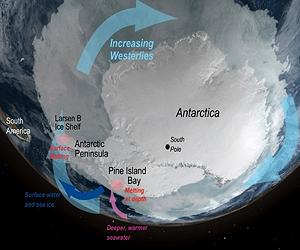Governance and Climate Change
According to the World Bank Group’s Governance and Anticorruption Strategy (GAC), governance is “the manner in which public officials and institutions acquire and exercise the authority to shape public policy and provide public goods and services”. Poor governance permits and even promotes corruption resulting in private gain and abuse of public office. Resources that should fuel development and reduce poverty enrich corrupt elites. Institutions matter, and civil society groups and parliaments can promote transparency and accountability, thereby strengthening governance and helping countries achieve the Millennium Development Goals (MDGs).
Good governance is necessary to effectively overcome development challenges and ensure sustainable development. The urgency of addressing these challenges is heightened by the need to combat the impacts of climate change. For developing countries, better management of floods, droughts and storm surges is necessary, while also maintaining gains made in reducing poverty.
Climate change also provides opportunities in using new financial instruments to achieve low carbon, climate-resilient and socially equitable development. However, for countries to receive international financing to address climate change, adequate governance institutions in developing countries must enable effective use of funds. Other governance-related questions include the following:
• Can funds support public sector works and do adequate institutions exist for implementing projects without corruption concerns?
• Can policy and legislative frameworks be developed for market-based instruments to be used effectively by the private and public sectors for climate-friendly development?
• Can existing institutional frameworks effectively combine weather-related insurance and natural disaster risk management as part of the adaptation agenda?
• Can different line ministries work together to address the climate-development challenges?
• Can public policies provide an umbrella for public-private initiatives, i.e., to: inform consumer choice on energy efficiency appliances and building construction; and ensure land tenure, access and rights of local and indigenous peoples are not eroded through reducing emissions from deforestation and forest degradation (REDD)?
• Can policies be developed to help reduce land-based carbon emissions and land-water degradation, and provide payments to local and indigenous communities to help reduce poverty?
To address some of these questions, the World Bank Institute (WBI) is bringing together its work on governance and climate change in many of its activities and for different stakeholders. For example, youth activists are critical to social accountability efforts, and, as future leaders, they have a role to play in shaping climate-friendly development. Parliamentarians shape national development agendas, and their representative, legislative and oversight responsibilities are essential for taking action on climate change and development. This issue of the e-bulletin addresses what WBI is doing to engage with and enhance the capacity of these stakeholders.
WBI’s Climate Change Practice is also facilitating action on adaptation, particularly in many African countries. The section on knowledge products and activities of the agriculture, water and natural resource management program showcases our efforts in this arena. This e-bulletin also covers other areas WBI is focusing its efforts on, such as Cities and Climate Change. It also addresses the ongoing work of Carbon Finance Assist, which highlights the use of market and, increasingly, non-market instruments to reduce emissions.
I would like to thank Mitchell O’Brien and Miriam Bensky in the WBI Governance Practice for their contribution to this preface. We hope you enjoy these articles and we look forward to interacting with you further.
Habiba Gitay
Sr. Environmental Specialist and Acting Practice Manager
WBI Climate Change Practice








